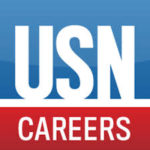 How to respond to a question that catches you off guard.
How to respond to a question that catches you off guard.
 As seen in U.S. News | February 13, 2017
As seen in U.S. News | February 13, 2017
Interviewing is stressful and nerve-wracking for most. Sometimes, you have all the right answers. Other times, the process can reduce a normally confident professional into a sweating, rambling, seemingly inexperienced newbie in their field. No matter how comfortable you are with the process, chances are you will be asked a question for which you don’t have an answer, or be asked about experience you are lacking. How you respond when the pressure is on says a lot about you. Here are three tips on how to survive the stump. Don’t lie. In her book “Presence,” Amy Cuddy, an associate professor at Harvard Business School, says that people judge others on two factors: trust and respect. Of the two, Cuddy’s research has shown that trust is required first. “From an evolutionary perspective, it is more crucial to our survival to know whether a person deserves our trust,” she says. This is a critical finding for job seekers deciding whether to embellish an answer or be honest about a shortcoming. The top priority in an interview is to convey that you are genuinely the right person for the job and you can be trusted to be part of the team.
The flip side of this is the candidate who rushes to give an ideal-sounding (but not entirely truthful) answer. If the hiring team picks up the insincerity or learns the response wasn’t accurate, all credibility is lost. You cannot re-establish credibility in the interview process once it is gone. So, remember, when in doubt, be honest.
Ask for clarification. My son once had a math teacher who shared some of the greatest advice I have ever heard: If you are stumped on how to solve a problem that seems unnecessarily difficult, chances are you are trying to solve the wrong thing. Most questions in an interview should be answerable. If you have been asked a question that seems unnecessarily difficult, there is a strong possibility you may have misinterpreted what has been asked. It is always better to ask for clarification than it is to flail in uncertainty.
You are not alone in the instinct to quickly answer before you have checked your assumptions. Stopping to clarify is a learned professional and social skill. It requires patience, self-control, confidence and a desire to get the right thing done (not just get something done). These are excellent traits to demonstrate to a prospective employer. They are the signs of a strategic and efficient employee who has the ability to thrive in dynamic environments. Embrace the opportunity to display them.
Demonstrate your problem-solving ability. The world of work is evolving at record rates thanks to the rapid growth in digital and technological advancements. Employees encounter new issues and problems for which there is no best practice or protocol on a regular basis. Often a tough question is designed to see how you react when you don’t have an answer. This is a chance to show your problem-solving competence.
Start by asking for clarification and checking your assumptions. It is also OK to say, “That is a great (or unique) question. Although I have not experienced that in the past, here is how I would approach it here.” You are establishing that you are trustworthy, because you did not make up an answer. You are demonstrating your capabilities with your methodical approach to handling the answer. And, you are showing that you can move forward even when uncertain or under stress.
There are a few interviewers who are mean-spirited and delight in making candidates squirm. But most of the time, the tough questions serve a purpose. On the surface, they can shed light on technical areas of expertise you need to demonstrate to work effectively in the role. At a deeper level, they may mirror the stressors often faced in the work environment. Furthermore, they champion the honest, thoughtful problem-solver who has the best chance of acclimating to a new environment and a dynamic role. The next time you feel stumped, relax and remember having an answer isn’t the only purpose of the question.
